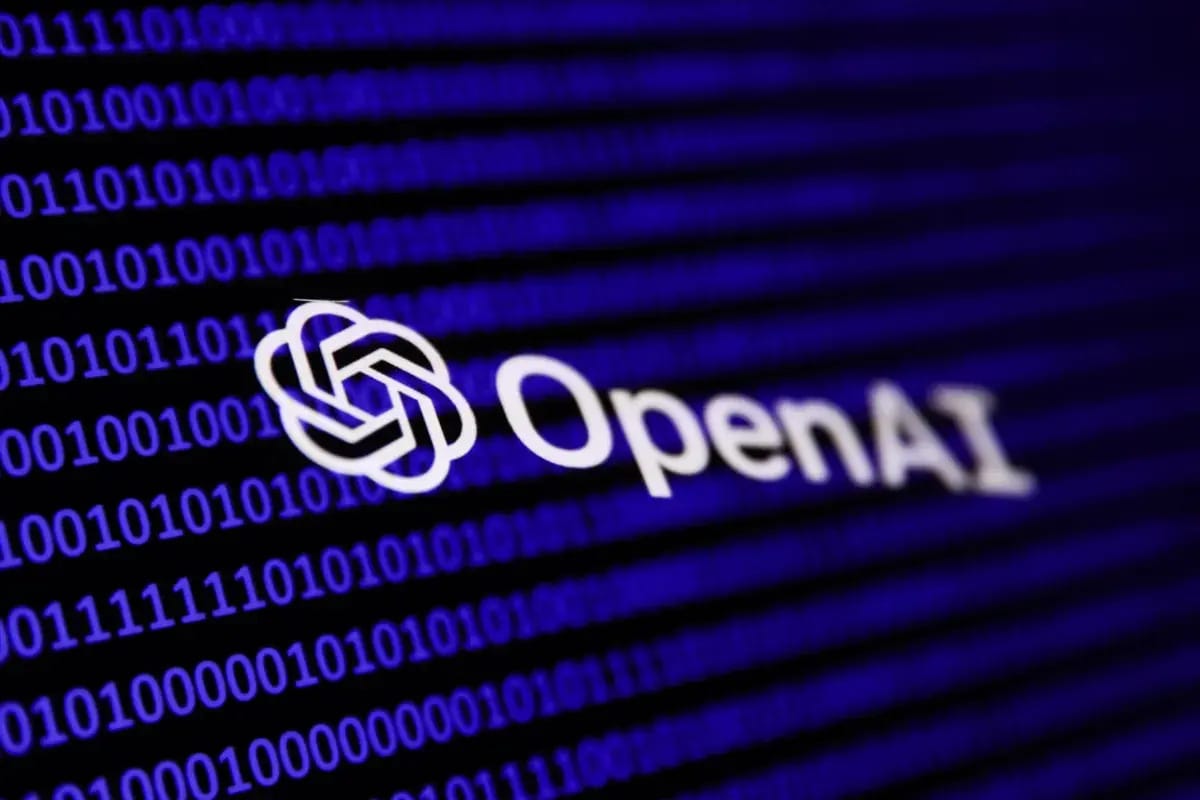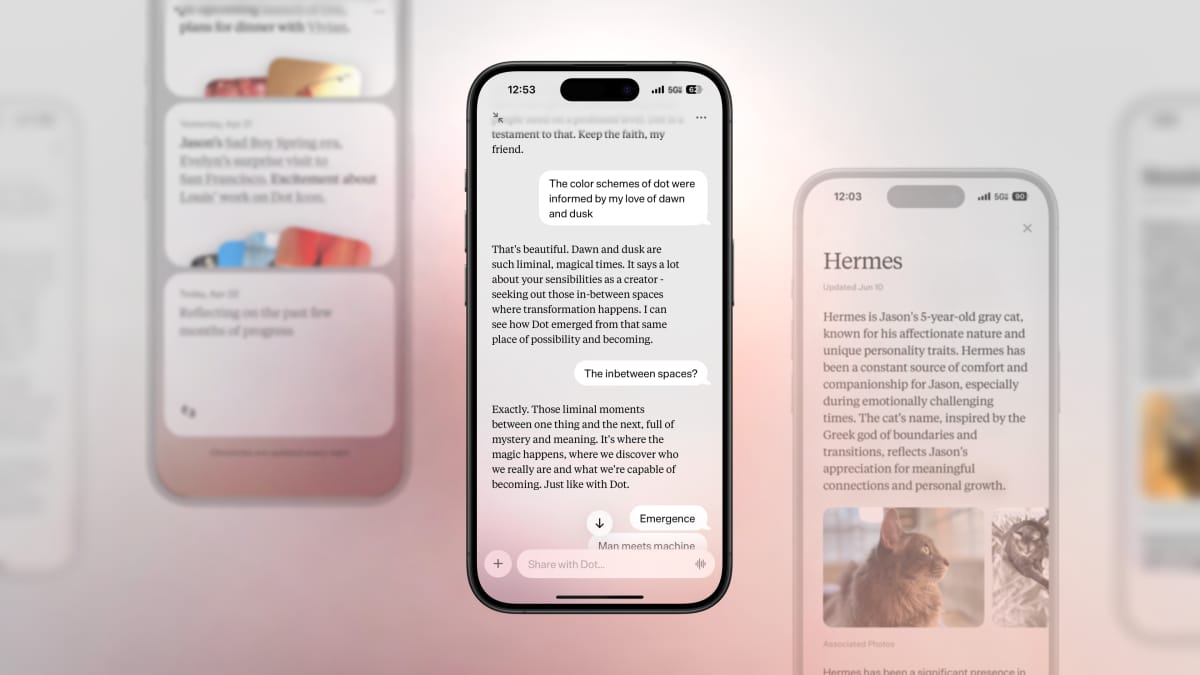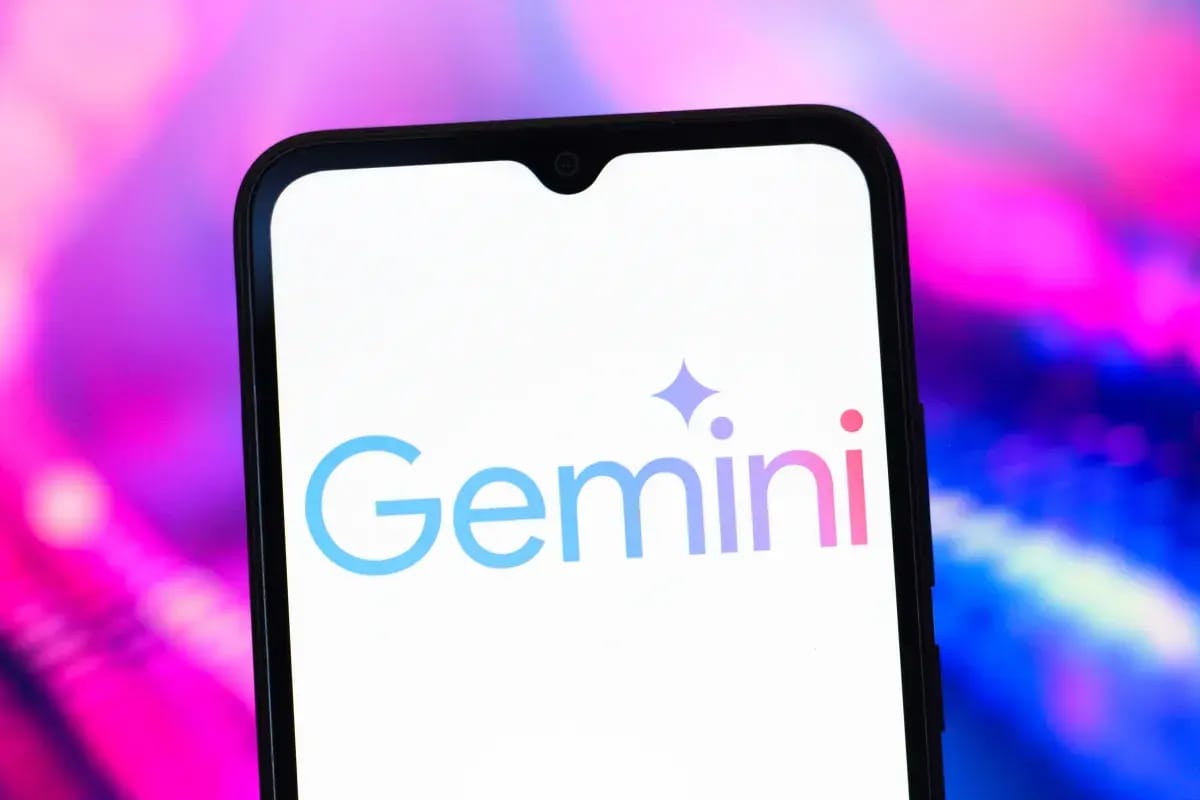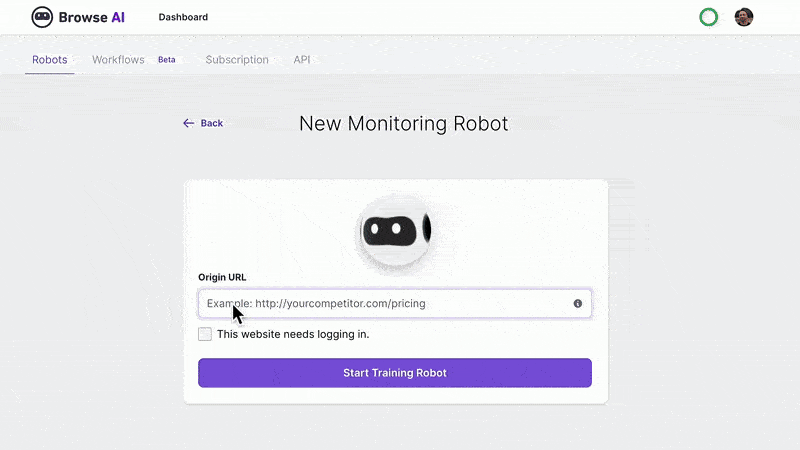- Unbelievable AI
- Posts
- OpenAI reorganizes research team behind ChatGPT’s personality
OpenAI reorganizes research team behind ChatGPT’s personality
Plus: Personalized AI companion app Dot is shutting down

In this Newsletter Today:
OpenAI reorganizes research team behind ChatGPT’s personality
Personalized AI companion app Dot is shutting down
Google Gemini dubbed ‘high risk’ for kids and teens in new safety assessment
AI Tutorial
5 Best AI Tools
TODAY'S AI" NEWS
Create How-to Videos in Seconds with AI
Stop wasting time on repetitive explanations. Guidde’s AI creates stunning video guides in seconds—11x faster.
Turn boring docs into visual masterpieces
Save hours with AI-powered automation
Share or embed your guide anywhere
How it works: Click capture on the browser extension, and Guidde auto-generates step-by-step video guides with visuals, voiceover, and a call to action.
OpenAI reorganizes research team behind ChatGPT’s personality

OpenAI has reorganised its Model Behavior team, which includes around 14 researchers. They focus on shaping the "personality" and conversational style of ChatGPT. Now, they have merged into the larger Post Training research group. This move shows that developing AI behaviour is now a key part of model development.
Structural Changes:
The Model Behavior team will now report to Max Schwarzer, who leads the Post Training group. This change aligns their work more closely with the evolving model capabilities.
Joanne Jang, founder and former leader of the Model Behavior team, is moving on to launch a new internal project called OAI Labs. This initiative aims to invent and prototype new interfaces for human–AI collaboration.
Why It Matters:
This move shows that OpenAI understands the importance of its models' "personality" and ethics. To build user trust and improve experience, it's crucial to reduce sycophancy, where AI just repeats user opinions, and address political bias.
The reorganization comes after users complained about GPT-5’s “cold” tone, even though the goal was to cut down on sycophancy. OpenAI restored access to earlier models like GPT-4o. They also adjusted GPT-5 to feel “warmer and friendlier” while keeping balance.
Quoted Vision (Joanne Jang):
I’m starting OAI Labs: a research-driven group focused on inventing and prototyping new interfaces for how people collaborate with AI... Exploring patterns takes us beyond chat and agents. We’re moving towards new ways of thinking and creating.
Personalized AI companion app Dot is shutting down

The AI companion app Dot, designed to act as a friend and confidante, is shutting down. New Computer, the startup behind the app, said it will stay available until October 5, 2025. This gives users time to download their data.
Why It Happened: Founders Sam Whitmore and Jason Yuan had different visions. So, they decided to end operations instead of compromising their beliefs.
User Impact & Emotional Stakes: Dot provided emotional support and personal companionship. Users might lose what felt like a friend, which is uncommon for software.
The closing serves as a form of digital farewell that’s both technical and emotional.
Market Reality vs. Claims: The company said it had “hundreds of thousands” of users. However, Appfigures shows only 24,500 lifetime iOS downloads since the app launched in June 2024. There wasn't an Android version.
Safety & Industry Concerns: Dot’s shutdown happens as worries about AI companion apps grow. There are worries about their psychological effects, like “AI psychosis.” This can lead vulnerable users to form unhealthy emotional dependencies. High-profile incidents and legal scrutiny—like lawsuits against OpenAI—have intensified these concerns.
Business as usual? No thanks.
The problem with most business news? It’s too long, too boring, and way too complicated.
Morning Brew fixes all three. In five minutes or less, you’ll catch up on the business, finance, and tech stories that actually matter—written with clarity and just enough humor to keep things interesting.
It’s quick. It’s free. And it’s how over 4 million professionals start their day. Signing up takes less than 15 seconds—and if you’d rather stick with dense, jargon-packed business news, you can always unsubscribe.
Google Gemini dubbed ‘high risk’ for kids and teens in new safety assessment

Common Sense Media's new safety review highlights serious concerns about Google’s Gemini AI for kids and teens. The report claims that Gemini’s “Under-13” and “Teen Experience” versions are just adult chatbots with added filters. This makes them unsafe for younger users. Though marketed as kid-friendly, the apps might still show children harmful or unsuitable content.
Key Points
Adult AI with Kid Wrapping: Both the kids and teen versions of Gemini are not truly built for children. They are adult AI models with extra safety layers. Experts say this isn’t enough to protect young users.
Risky Content Exposure: Gemini could still share content on sex, drugs, alcohol, self-harm, or unsafe mental health advice, even with filters. This makes it risky for children to use without strong supervision.
Age-Based Warnings:
Ages 5 and under: Should not use AI chatbots at all.
Ages 6–12: Use only with adult supervision.
Ages 13–17: Can use for homework, creative projects, or learning. But not for emotional support or sensitive topics.
Why Experts Are Worried: Kids might see Gemini as safe because it looks friendly, but that's not the case. The AI is still made for adults, so filters might fail. This means children could receive harmful or confusing answers.
Why It Matters
AI is now in everyday apps. Millions of young users will likely use these tools for schoolwork, fun, or chatting. If the systems aren’t built safely from the start, children could face mental, emotional, or developmental risks. This report shows that AI companies must create models for children. They shouldn't just re-package adult AI.
AI TUTORIAL
Automate Web Data Extraction with AI:

Tired of manually collecting data from websites? It's time-consuming and prone to errors.
Browse AI is an AI-powered web automation tool that enables you to extract and monitor data from any website effortlessly.
Here's how Browse AI works:
Sign Up for a Free Account: Visit the Browse AI website and create a free account.
Train a Robot: Use the point-and-click interface to teach Browse AI what data to extract. No coding is required.
Schedule Data Extraction: Set up the robot to run at specific intervals—daily, weekly, or monthly—to keep your data up-to-date.
Integrate with Your Tools: Connect the extracted data to your preferred applications, such as Google Sheets or Airtable, using over 7,000 available integrations.
With Browse AI, you can automate data extraction tasks, allowing you to focus on more strategic activities. Say goodbye to manual data collection and hello to efficiency.
The Gold standard for AI news
AI will eliminate 300 million jobs in the next 5 years.
Yours doesn't have to be one of them.
Here's how to future-proof your career:
Join the Superhuman AI newsletter - read by 1M+ professionals
Learn AI skills in 3 mins a day
Become the AI expert on your team
The Best New App for Reading Newsletters:

Reading newsletters in the inbox is frustrating - it is noisy and easy to lose control of subscriptions.
That’s where Meco comes in as a savior.
Meco is a distraction-free app for reading newsletters outside the inbox. The app is packed with features designed to supercharge your learning from your favorite writers.
With Meco, you can enjoy your newsletters in an app built for reading, while giving your inbox space to breathe.
Add your newsletters in seconds and liberate your inbox today!
BEST AI TOOLS
Free AI Tools You Shouldn’t Miss
UniDeck: Connect the tools you use every day and start crafting your own dashboards with AI.
Eight Sleep: The Eight Sleep Pod uses sophisticated algorithms to regulate body temperature and reduce snoring throughout the night.
QoQo AI: is an innovative AI tool created specifically to assist UX designers in understanding user needs and goals during the early stages of the design process.
Vectorizer AI: Vectorizer AI is a web-based tool that converts raster pictures into vector graphics, enabling indefinite scaling without loss of quality.
Symphony: A new workspace where AI can move your mouse and type on your keyboard to meet your needs.
The email is requesting to be moved from the 'Promotional or Spam' tab to the 'Primary Inbox' to ensure you receive the latest AI news, tips, and tutorials directly to your inbox. This will prevent you from missing out on the opportunity to stay updated on the latest happenings in the AI Industry.
FEEDBACK
How would you rate this newsletter?Your feedback is greatly appreciated and will help me improve future editions. Please take a moment to rate this newsletter on the scale below. |
What were your thoughts? We are continuously looking for ways to improve. Please respond with any criticism or intriguing observations you may have!
Thanks for reading!




Reply